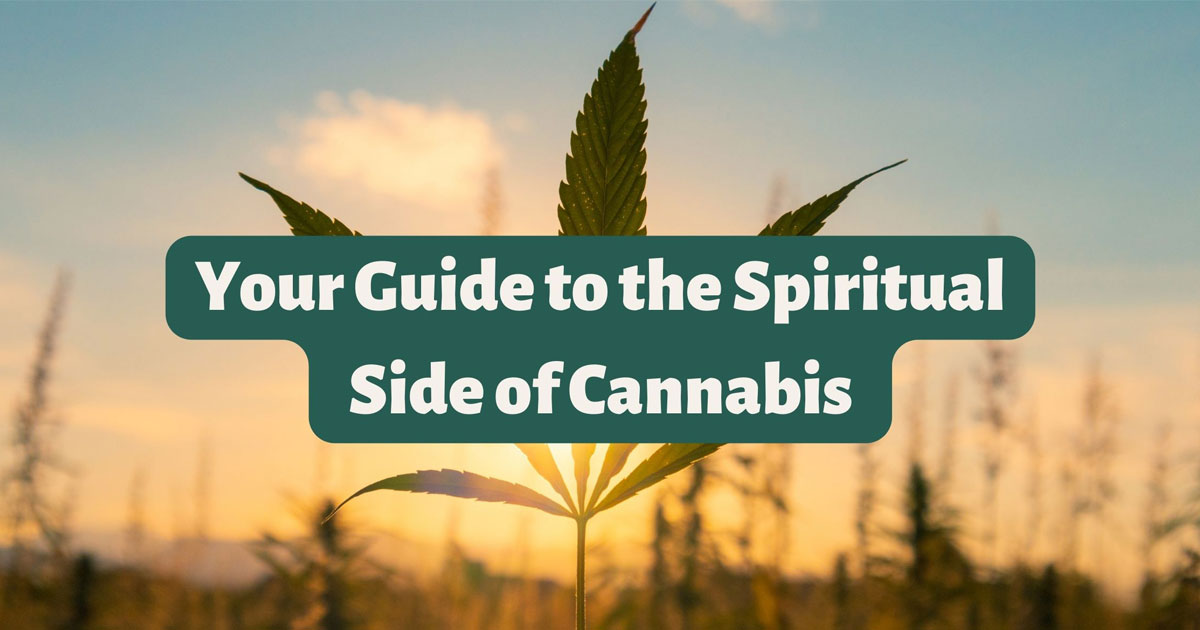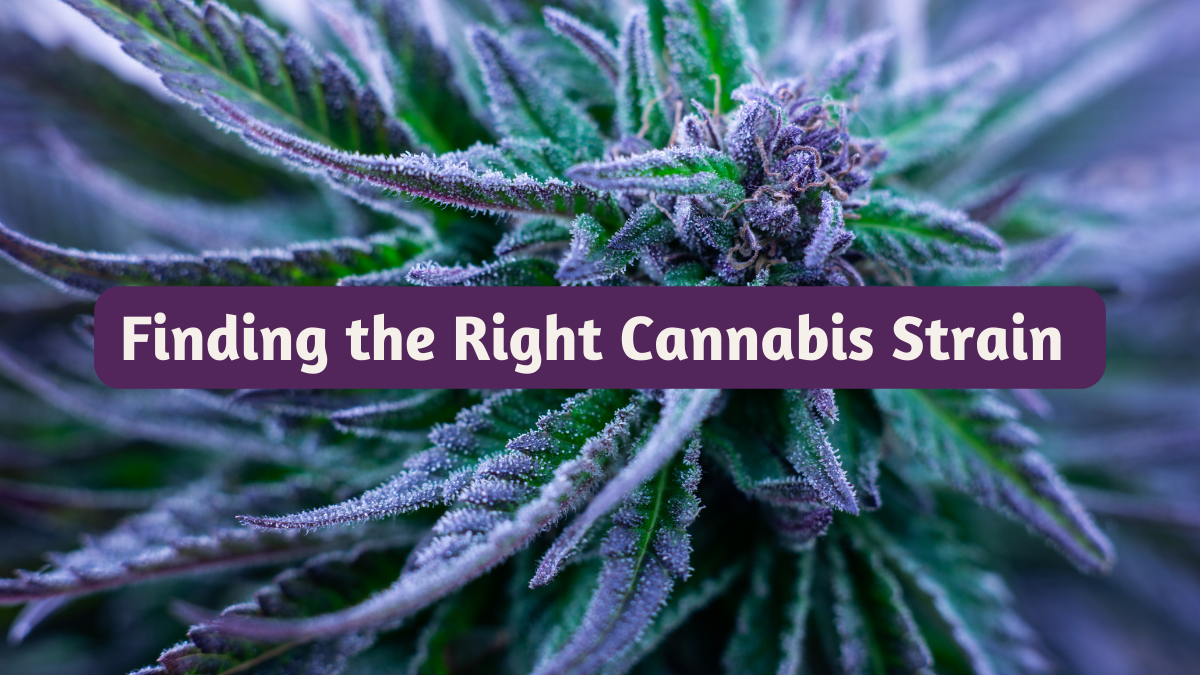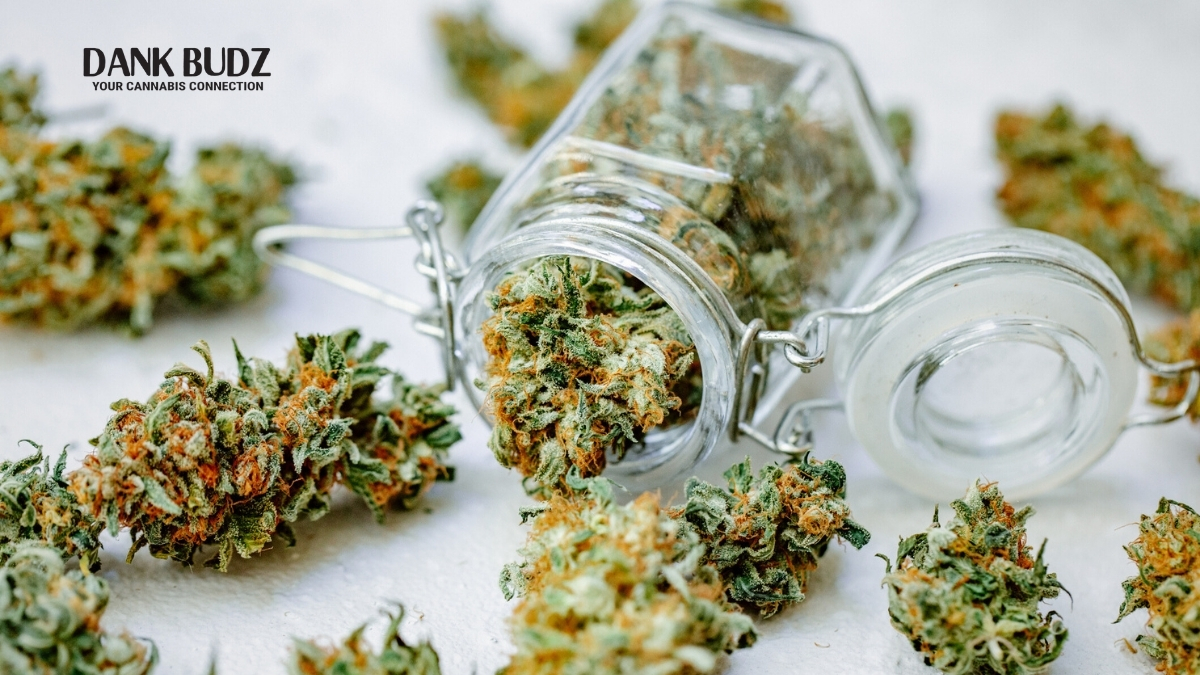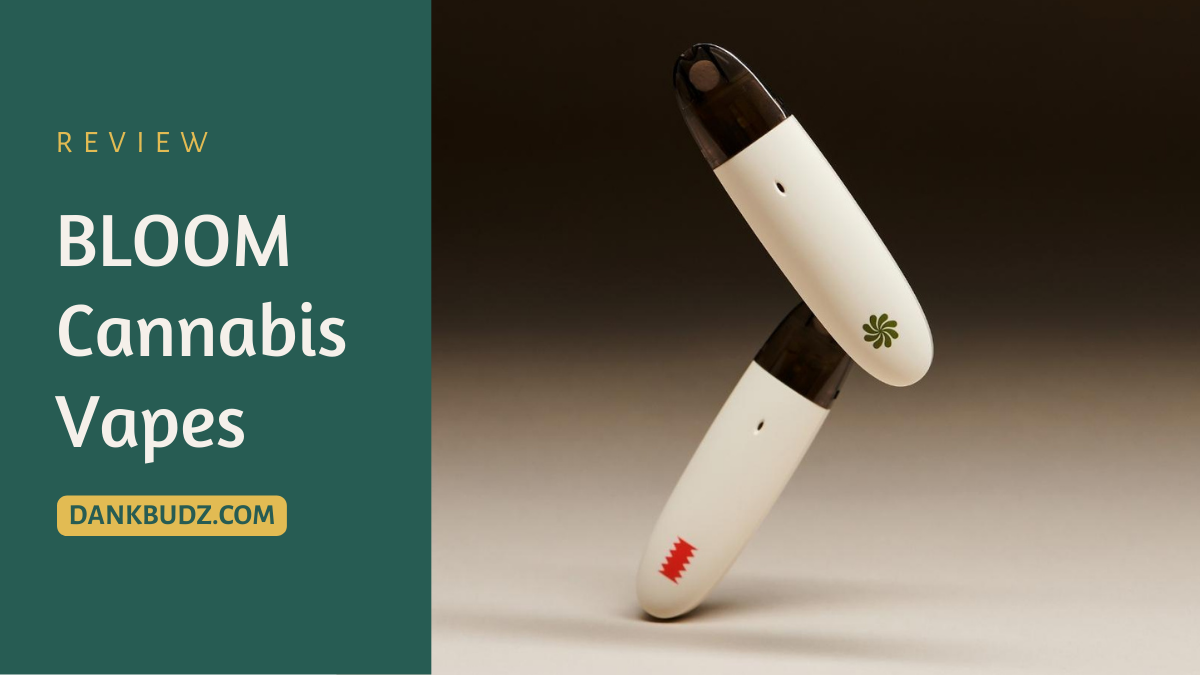
Cannabis is a remarkable, multi-use plant whose story has been intertwined with human history in a deep and rich way over the span of thousands of years. Hundreds of years before anyone reading this ever walked the earth, the potent flowers of our beloved cannabis sativa L. plant were already being used for spiritual and medicinal purposes from the north of Africa to the distant East. In this guide, we will reconcile the historical, social, religious, and therapeutic aspects of cannabis.
We hope to shed light on cannabis’ profound spiritual connection to our species and help you better understand the story of cannabis from an anthropological and theological standpoint.
Join us on this enlightening journey as we delve into the ancient roots of cannabis as a spiritual agent and its resurgence in contemporary practice.
Marijuana Use in Ancient Times
As mentioned, cannabis sativa L. use spanned much of the ancient world. Many ancient peoples used cannabis plants to make hemp fibers and strong hemp ropes. While this likely also had a profound impact on early human technological advancements, we’ll be focusing on a different part of the plant – the beloved flower.
In ancient Indian, Egyptian, and Chinese cultures, and even in the classical era of Greek and Roman civilizations, cannabis had a significant role in spiritual and medicinal practices, as well as day-to-day life. These civilizations recognized its potential to induce altered states of consciousness in a way that can enhance spiritual experiences.
Throughout human history, some of the key spiritual uses for smokable and ingestible cannabis have included:
- Meditation
- Inducing visions/visualizations
- Chanting ceremonies
- Yoga aid
- Shamanistic rituals
- Personal introspection
- Creative aid/artistic inspiration
- Inducing sleep/hypnotic state
- Medicinal rituals (pain relief, anti-anxiety
- Group ceremonies/dance rituals
- Communicating with spirits, ancestors, gods, nature, etc.
In many cultures, these types of rituals and activities were paired with cannabis use to play a crucial role in connecting individuals with divinity. Religion, in turn, can help people make sense of a complicated and difficult world. So who exactly started using cannabis for these purposes, and where?
India
Indian cannabis culture is the source of the borrowed term “ganja,” which is still a popular slang term for cannabis to this day. You’ll find it used especially in Jamaica and other parts of the Caribbean with an Indian influence. Cannabis has a rich historical and cultural significance in India that goes back millennia.
In ancient India, cannabis was revered as a sacred plant with powerful spiritual properties. For obvious reasons, cannabis was believed to be a precious gift from the gods, and it was, in turn, considered a vehicle for connecting with the divine. Cannabis was commonly used in religious rituals and ceremonies focused on the worship of Lord Shiva, a principal Hindu deity.

When associated with cannabis, Lord Shiva is often depicted in the aspect of Nataraja, the Lord of Dance, whose lore includes a deep affinity for cannabis. Just as Shiva used bhang (a combination of cannabis and other flowers made into a confectionery or sweet tea) to reach a state of transcendence, his followers in the sect of Shaivism sought to do likewise, incorporating cannabis into many of their rituals.
Spiritual use of cannabis in India continues to this day, although its acceptance now varies quite a bit from region to region or even household to household. Some states in India, like Odisha, have legalized the cultivation and consumption of cannabis for religious and medicinal purposes. However, using cannabis in other parts of India can lead to a serious jail sentence.
Mesopotamia
In ancient Mesopotamia, cannabis (“kunubu”) held a prominent place in cultural and medicinal practices. The ancient Mesopotamians recognized the therapeutic properties of cannabis long ago, and its use for various purposes has been well documented. Scientists have noted archaeological evidence like clay tables suggesting the use of cannabis for pain relief and gastrointestinal issues.
While the spiritual aspects of cannabis use in ancient Mesopotamia are not well documented compared to some other cultures, it is believed that cannabis may have played a role in religious rituals and offerings. This contributed to the broader spiritual landscape of the region. It’s a religious landscape that would later come to define the broader scope of geopolitics for thousands of years.
Egypt
Cannabis, or “shemshemet” in ancient Egypt, has held a significant place in the religious practices and cultural traditions of the country for thousands of years. In fact, Egypt has a rich cannabis history to rival India’s.
Cannabis is believed to be strongly associated with the Egyptian goddess Seshat, revered as the patroness of writing, wisdom, and spirituality. This is because depictions of Seshat often include a seven-pointed leaf that looks remarkably like a cannabis leaf. This connection between cannabis and the goddess of creative and spiritual endeavors highlights the significance attributed to the plant in ancient Egyptian culture.

The ancient Egyptians may have believed that cannabis had the power to induce visions and connect individuals with a spiritual realm beyond their physical existence. Cannabis was probably used by priests and priestesses during rituals and ceremonies to attune participants to the spiritual realm in an attempt to gain divine insight through an altered state of consciousness. Just as with ancient Indian spiritual practices, cannabis in ancient Egypt was revered for allowing individuals to transcend the mundane world and access higher realms of spirituality.
There is also evidence of cannabis being used in the embalming process, with traces of cannabis and cannabis pollen found on several mummies. This would seem to suggest a strong association between cannabis and the journey to the afterlife. Likely it was thought that the relaxation and transcendental effects of cannabis would aid loved ones during their spiritual transition, ensuring a smooth passage into the next life.
While the spiritual implications of cannabis in the culture are significant, the Egyptians also used cannabis for some extremely practical purposes. As one favorite example, archaeological finds have included ancient Egyptian cannabis hemorrhoid suppositories.
North Africa
In other parts of North Africa beyond Egypt, cannabis has also played a significant cultural role. The indigenous Berber people of North Africa, for example, have a long history of utilizing cannabis for spiritual and medicinal purposes. Like the Indians and Egyptians, they, too, believed that cannabis could open new doors of perception, allowing individuals to commune with a spiritual plane where they might receive guidance from their ancestors.
North African Sufi mystics also believed that cannabis could help them achieve a heightened state of consciousness. This, in turn, could lead to a deeper connection with the divine powers that govern the universe.

Today, the spiritual use of cannabis in North Africa has evolved and adapted to modern circumstances. As with much of the modern world, this is complicated by the fact that the legal status of cannabis varies across the region. Nonetheless, its connection to spirituality remains deeply ingrained in the cultural fabric of these societies.
Ancient Greece and Rome
While scholarly debate still rages as to whether the ancient Greeks and Romans used cannabis on a religious basis, there is undeniable evidence of the use of hemp products in ancient Greece and Rome. It is also widely accepted that the medicinal properties of cannabis were known and taken advantage of throughout this period, even if there is less evidence for formal spiritual or ritualistic use.
Cannabis in the Modern Era

During the 19th century and even throughout the early part of the 20th, cannabis was still widely used as medicine throughout the world. This can seem difficult to imagine for those of us who grew up in a world of total cannabis prohibition. Still, today’s spread of legalization will allow us to relate to this history in a more direct way than ever before.
If you’re as fascinated as we are by the many spiritual implications of cannabis use and how its awesome healing powers have tied cultures together across centuries and thousands of miles, there is so much more information out there to explore, from ancient history to emergent research.
In addition to browsing our resources, we highly recommend:
The Resurgence of Spiritual Use
In the later parts of the 20th century, the rediscovery of marijuana’s health benefits led to the establishment of medical marijuana programs in over 40 US states and counting. For the first time in our lifetimes, an adult could walk into a retail establishment and purchase fully legal, lab-tested cannabis products, so long as they had obtained the necessary license through their doctor and the state. In another decade or so, the first states would begin to legalize cannabis sales to all adults of legal age, with or without a medical need.
Unsurprisingly, the spiritual connection to cannabis experienced a resurgence in our culture almost simultaneously with these legalization movements. Much like the ancients, today’s multi-faceted spirituality practices recognize the role of cannabis in expanding consciousness, facilitating introspection, and promoting mindfulness. Religions such as Rastafarianism and Hinduism continue to incorporate cannabis into key rituals and celebrations, carrying the ever-lit torch of its profound spiritual influence through the millennia.
The Future of Cannabis and Spirituality
Ongoing research continues to uncover the medicinal properties of marijuana, offering new insights into its therapeutic potential. The integration of cannabis into modern medicine holds promise for addressing various health conditions, but we need not look at medicine and spirituality as an either/or proposition. After all, doctors and priests have had largely indistinguishable roles in many cultures throughout the centuries.
Spiritual cannabis is on a great trajectory for the future. As we experience the further spread of decriminalization and legalization throughout the rest of the United States, cannabis will only become more accessible to more people. So, too, will its spiritual properties and the deeply personal religious experiences it can potentially help facilitate for people of any faith.
Culture is Shifting its Perception of Cannabis

As attitudes and perceptions evolve, and good science continues to inform our understanding of cannabis, society is recognizing the benefits of responsible cannabis use. This huge cultural shift, which may have been unthinkable to many a mere 20 years ago, can itself be seen as a sort of great victory in a spiritual war.
Resources :






